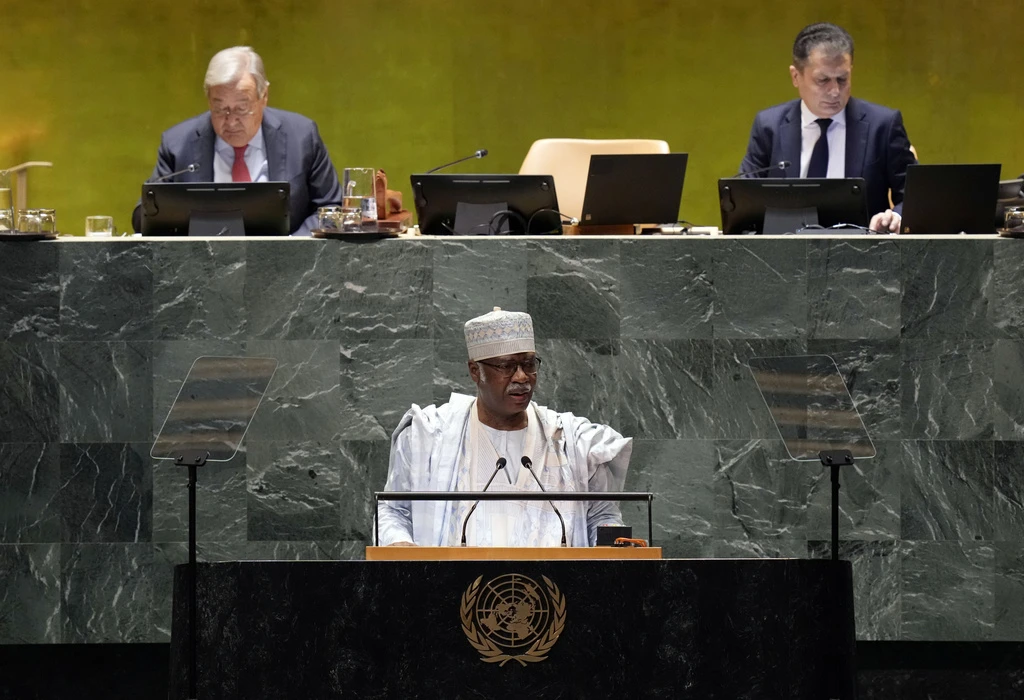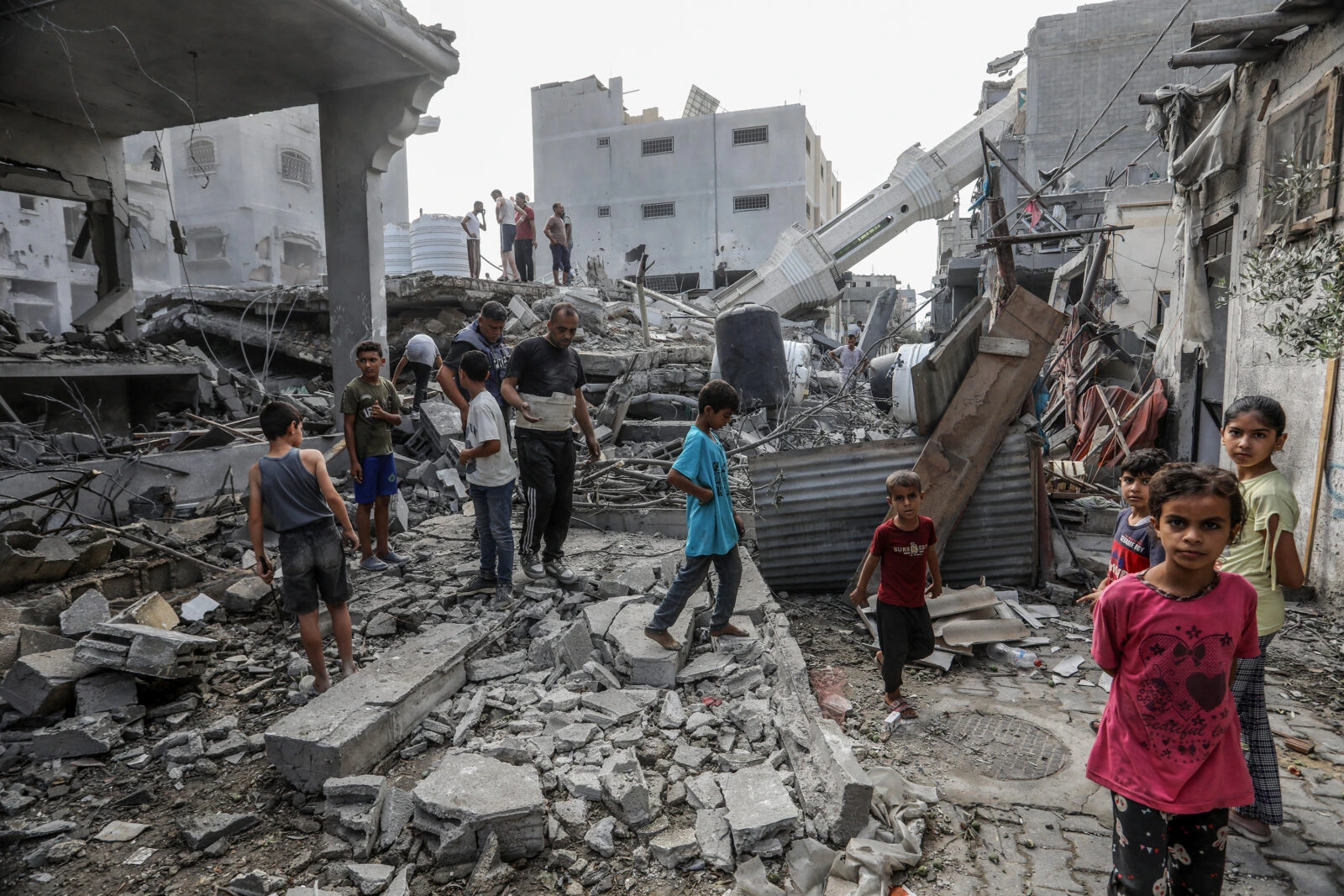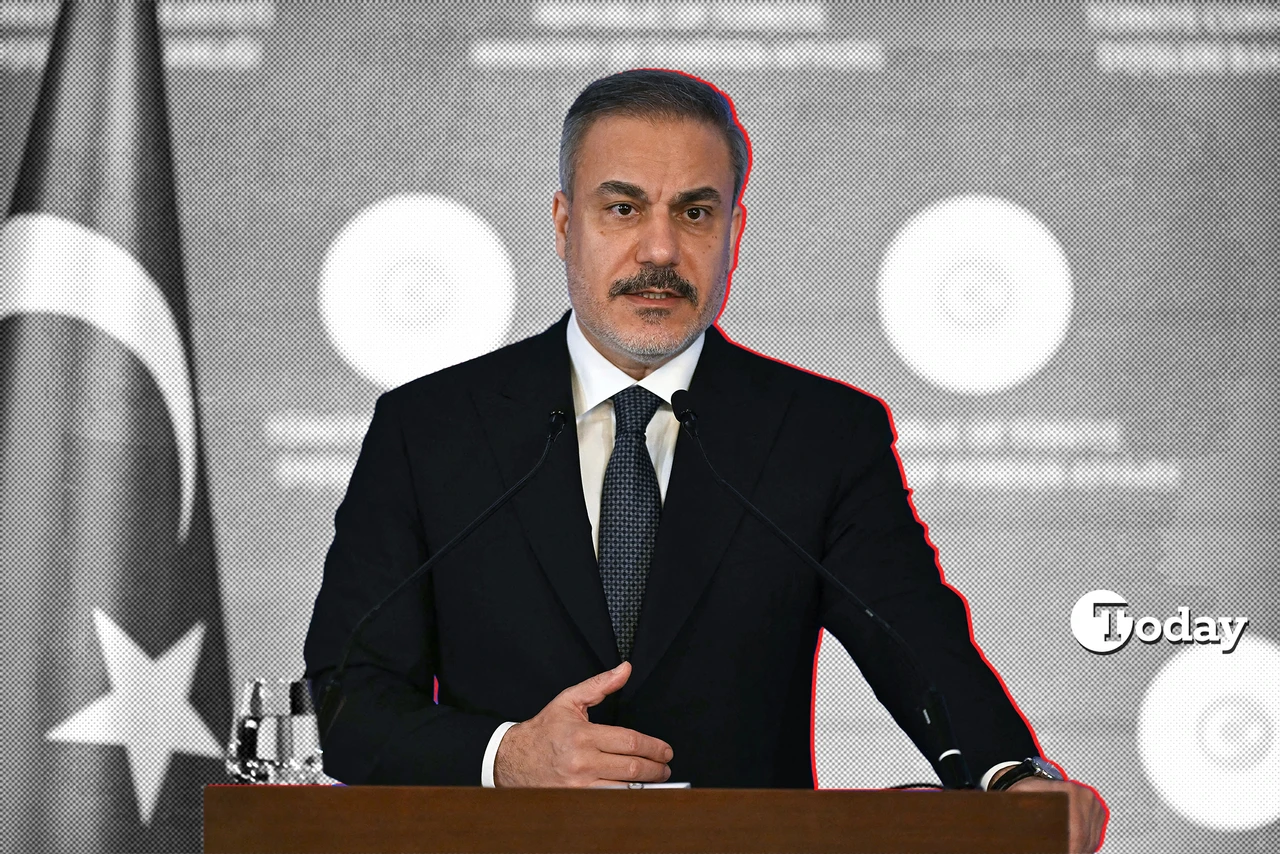Only two-state solution can end cycle of violence, instability: UNGA president
 Philemon Yang, President of the General Assembly, addresses the 79th session of the United Nations General Assembly, Tuesday, Sept. 24, 2024. (AP Photo/Richard Drew)
Philemon Yang, President of the General Assembly, addresses the 79th session of the United Nations General Assembly, Tuesday, Sept. 24, 2024. (AP Photo/Richard Drew)
United Nations 79th General Assembly President Philemon Yang stated that “only a two-state solution can end the cycle of violence and instability,” during his address at the opening of the 79th U.N. General Assembly.
Yang emphasized that the U.N. General Assembly session is one of the most inclusive platforms for global consultation and action.
He underlined the urgency of this year’s agenda, noting that progress on the Sustainable Development Goals has been significantly delayed, while the climate crisis is no longer a distant threat.
Conflicts continue to span from the Middle East to Ukraine, and from Haiti to Sudan, leaving behind a trail of death, destruction and immense suffering.
Call for cease-fire, two-state solution
Yang called for cease-fires in all conflicts, urging all parties involved to adhere to international law. He pointed out the situation in Gaza as a critical example, reiterating that “only a two-state solution can end the cycle of violence and instability,” which he believes would bring peace, security, and stability to both Israelis and Palestinians.

Global unity for peace
Yang stressed the need for the international community to unite in the pursuit of peace, calling for resources to be diverted away from military build-ups and arms races. He also noted the urgent need to renew the global financial architecture, alongside addressing the growing digital divide.
“We are not spectators to crises, nor are we powerless to act,” Yang said, reminding the assembly that the world’s nations are gathered to shape the future and bear the responsibility of doing so. He reaffirmed that international cooperation is the most powerful tool for positive change.

Building better world together
Although global consensus on every issue is unlikely, Yang expressed confidence that there is mutual agreement on building a better world for everyone, everywhere. “We may not agree on everything, but we are united in our desire to build a better world for everyone,” he noted.
Yang acknowledged that change is difficult but emphasized that it is possible.
“We have the tools and knowledge needed. Together, with courage and conviction, we can overcome these challenges,” he concluded.



